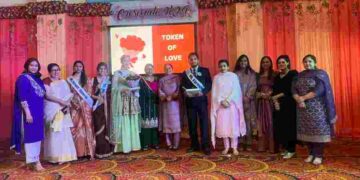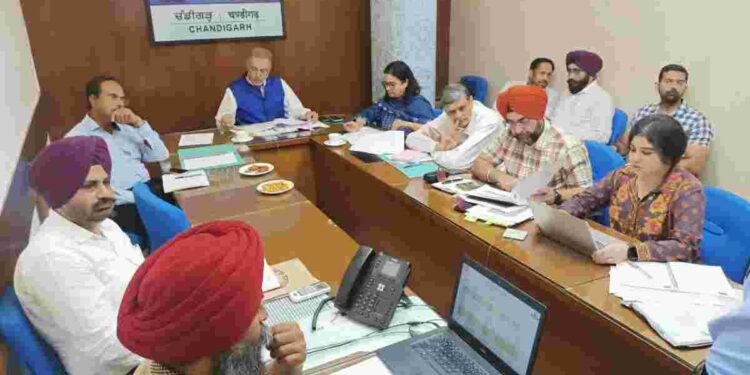— UNDERSCORES IMPORTANCE OF INTER DEPARTMENTAL COLLABORATION
— ‘DENGUE/MALARIA FREE VILLAGE ‘ CAMPAIGN TO BE STARTED SOON: DR BALBIR SINGH
— RO SYSTEMS IN VILLAGES TO BE MADE FUNCTIONAL
Chandigarh, July 22:
Punjab Health and Family Welfare Minister Dr Balbir Singh on Monday chaired a high-level meeting via video conferencing (VC) to review the preparedness for prevention and control of water and vector borne diseases in the state. The water-borne diseases include Diaohrrea, Cholera and Hepatitis -A, while, vector-borne diseases are malaria, dengue, and chikungunya.
Deputy Commissioners, Civil Surgeons, Senior Officers from Urban local bodies (ULB), Water Supply and Sanitation Department and Rural Development Department from across the state participated in the meeting.
Terming it as the collective responsibility to prevent and control such diseases, the Minister instructed the officials to make district level inter-departmental coordination committees along with IMA members. A WhatsApp group should be created at district level where concerned Civil Surgeons will post the cases of fever, diaohrrea, cholera, dengue or malaria diseases to update the concerned department so that they can timely intervene to take appropriate preventive measures in the particular area from where such cases are coming into light.
The Minister further added that in case of an outbreak, concerned water supply agency should find the fault where the potable water is getting polluted and should rectify the fault at the earliest. Till the time fault is not rectified potable water should be supplied from an alternative source to the general public to prevent further escalation of cases, he added.
Taking serious note of the non-functional RO systems in the villages, the Minister directed the officials to make these ROs fully functional so that people can get safe drinking water.
“Community support is critical to stop the chain of vector transmission. There is a need to promote awareness among the community about the prevention and control of water borne and VBDs,” said the Health Minister.
Stressing on the need to educate school children, he said that they can play a pivotal role in identification of the mosquito larvae and to further sensitise people around them to help identifying larvae to stop the breeding of mosquitoes in their surroundings.
The Minister also announced to initiate ‘Dengue/Malaria Free village’ campaign in the state under which if any ASHA worker declares her village as Dengue/Malaria Free will be honoured by the Health Department.
To prevent spread of vector borne diseases, Dr Balbir Singh said simple steps can be taken for keeping the surroundings clean and free from mosquitoes. Stagnant water should be checked and larvae sites should be effectively neutralised. “Success of the Vector Control Programme is related to community participation and ownership,”he added.
The Minister informed that dedicated dengue wards have been established in the government hospitals for management of dengue cases. As many as 47 Sentinel Surveillance Hospitals have been established for free dengue diagnosis in the State, besides free treatment is also being provided to the dengue patients at all the Government Hospitals. The staff of Aam Aadmi Clinics and Gram Sewaks of the panchayat department are being trained to undertake preventive measures to control the spread of WBDs and VBDs.
The Health Minister directed the Local bodies department to carry out fogging in the cities and towns at regular intervals and the fogging schedule be shared with the health department on advance basis.
On this occasion a comprehensive presentation was given by Assistant Director Dr Gagandeep Singh and State Programme officer Dr Arshdeep Kaur pertaining to these diseases, in which facts of recent years were analysed thoroughly and measures taken by the health department were explained in detail.
MD PHSC Varinder Sharma, Director Health and Family Welfare Dr Hitinder Kaur and Director PHSC Dr Anil Goyal were also present during the meeting.








